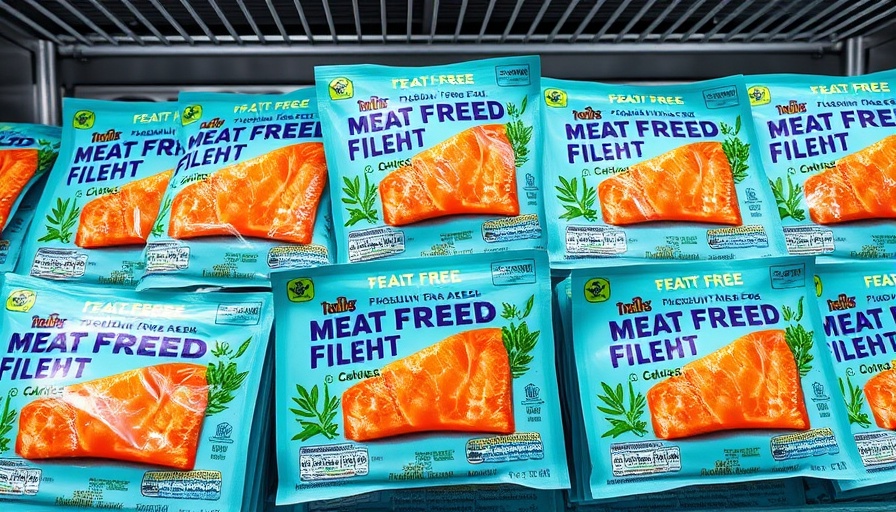
The Rise of Plant-Based Seafood: Unexpected Trends
The plant-based seafood industry is riding a significant wave of popularity, with products mimicking the taste and appearance of traditional fish dishes taking center stage. But what is fueling this trend? For foodies and health-conscious parents, it's not just about dietary choices; it’s a reflection of shifting consumer preferences toward sustainability and healthier eating. Traditional fish stocks are under stress due to overfishing, making alternatives more appealing. The market is expanding rapidly, and consumers are increasingly willing to explore innovative products that promise similar flavors without contributing to the depletion of marine resources.
Why Clear Labeling Matters
With the recent EU study calling for stricter plant-based seafood labeling rules, clarity has never been more essential for consumers navigating the marketplace. Many brands utilize names and marketing reminiscent of real seafood, which can be misleading. A staggering number of products—almost 50% according to the report—employ invented names that suggest they contain marine ingredients, while only 13% provide clear descriptions of what they actually contain. This lack of transparency can lead to confusion among consumers, particularly those who might be avoiding animal-based products for health or ethical reasons.
Consumer Trust: Key to Market Success
The study highlighted that establishing consumer trust is vital for these products to succeed. If plant-based alternatives want to gain a foothold among discerning shoppers, straightforward labeling is a must. The European fishing industry, represented by Europeche, has strongly welcomed the study, stressing that it’s not against plant-based products but advocates for ‘truth in advertising.’ Key recommendations urge prohibiting the use of fish names for non-marine products and enforcing transparency regarding ingredients and nutritional info. Without these measures, consumers might feel deceived, ultimately damaging trust in all plant-based options.
Insights for Dining Choices
For families and food enthusiasts, understanding labeling is more critical than ever. As parents increasingly seek to provide healthy meals, distinguishing between genuinely nutritious plant-based seafood and those that are merely masquerading as such can be tricky. The proposed changes to labeling could meaningfully influence dining choices, ensuring that what’s presented as ‘healthy’ actually is. By becoming more informed, families can encourage companies to provide products that genuinely meet their dietary needs and preferences.
Looking Ahead: A New Era of Accountability
As we look forward, we can anticipate increased regulations within the plant-based seafood market. This is a significant step towards a more consumer-conscious food landscape. With the right evolution in labeling practices, the industry could enhance consumer confidence and transparency, opening the door for broader acceptance of plant-based seafood amidst traditional options. And for those families striving for a balanced, sustainable diet, this might mean both a delightfully diverse menu and peace of mind.
Ultimately, it is up to all stakeholders—marketers, producers, regulators, and consumers—to work collaboratively to foster a marketplace where informed choices can flourish. Let’s support calls for clear labeling, ensuring everyone can enjoy the delicious innovations in plant-based seafood without ambiguity.
 Add Row
Add Row  Add
Add 




Write A Comment